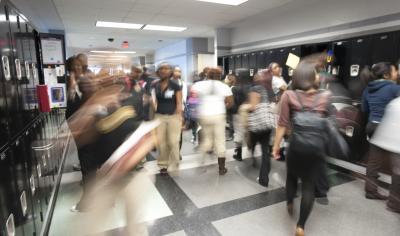[dropcap style=”font-size:100px; color:#992211;”]H[/dropcap]ip-Hop kids get punished more often and more severely.
Essentially, it’s the plot of every episode of the Fresh Prince ever.
Black and Latino “hip-hop” students are disproportionately punished in urban schools, finds a two-year study that sheds light on some of the unfair disciplinary practices newly targeted by the Obama administration.
Cultural behaviors and dress
Muhammad Khalifa, a Michigan State University assistant professor of education, found that students who identified with hip-hop culture were often removed from school because of their cultural behaviors and dress. His paper is published in the research journal Multicultural Learning and Teaching.
“School culture is very hostile toward hip-hop student identities,” said Khalifa, a former Detroit school teacher who identified with hip-hop culture as a young man. “Teachers possess an impulse to suspend or expel nontraditional students.”
Federal guidelines
On Jan. 8, the Obama administration issued federal guidelines urging schools to abandon zero tolerance policies that critics have long said discriminate against minority students.
“In our investigations, we have found cases where African-American students were disciplined more harshly and more frequently because of their race than similarly situated white students,” the Justice and Education departments said in a letter to school districts. “In short, racial discrimination in school discipline is a real  problem.”
problem.”
Racial discrimination in school discipline
While Khalifa’s study illustrated discrimination among minority hip-hop students, it also found a bright spot. One urban school principal allowed hip-hop students to exhibit their identities, while at the same modifying what he viewed as negative behaviors.
Ultimately, the low-performing students improved their academic performance.
“We now know that it is possible for students to achieve great success, academic or otherwise, all the while keeping their hip-hop identities intact,” Khalifa said.
Source: Michigan State University
Photo: As above

Some of the news that we find inspiring, diverting, wrong or so very right.




















